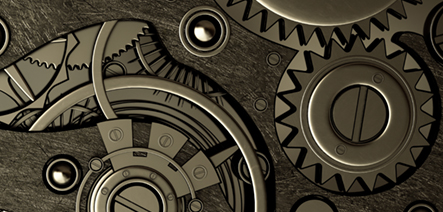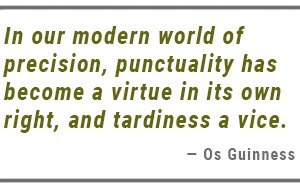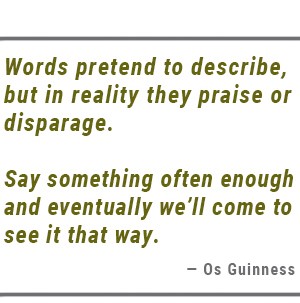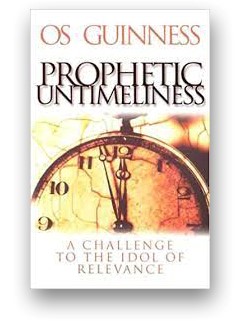Paying Homage to the Sinister God

Paying Homage
to the Sinister God
If you asked fifty historians to name the most important inventions of modern time, you’d likely get fifty different answers. They might include things like the water wheel, the telescope, gunpowder, the movable type printing press, the blast furnace, the automobile, alternating current, the airplane, computers — all of which are integral to our daily lives but only one invention has risen to the level of a god which we serve – the lowly mechanical clock.
Invented in Europe sometime around 1400AD, the mechanical clock supplanted the time limited hourglass and the weather restricted sun dial. More important, it moved the Western world from nature-driven time to artificially measured increments of time, aptly labeled “clock time” by Os Guinness in his 2003 book “Prophetic Untimeliness”.
Our Timeless Obsession with Time and Timeliness
Western culture has evolved to the point where we are obsessed with time, so much so that we have become its slaves. Nineteenth Century poet and essayist, Charles Baudelaire correctly labeled it “The Sinister God” because there is no appeasing it.
In 1751, Henry Feilding first coined the phrase, “Time is money” and ever since then, we have been “buying time”, “maximizing our time”, “seeking quality time”, “calculating opportunity costs”, and “making the most of every second”.

We have, according to Guinness, willingly enslaved ourselves to the tyranny of the urgent wherein time is the ultimate credit card, speed is the universal style of spending and “the faster, the better” is the tempo of life”.
Past, Present, and Future – They’re all Tense.
Not only are we trying to wedge as much as possible into the present, we’ve become so engrossed by its two bookend eras (over which we have zero control) that we waste much of the present, being consumed by them.
We cling to the past like a toddler clings to a security blanket. As Thomas Sowell demonstrated in his book, “Discrimination and Disparities”, we burn bridges and form political divisions over the actions of our ancestors that occurred hundreds of years before we were even born. Moreover, most of the conflicts in the Middle East have their roots in disputes that happened thousands of years ago. We squander our relationships of “today” finding ways to assign blame for the wrongs of “yesterday”.
And, then, there’s our infatuation with the future. We expend so much precious time trying to figure out the “next big thing” that we neglect the attention we should be paying to the present. How many financial prophecies have actually come true? How many predictions of dire consequences have come to pass? When I was in sixth grade (1966), I remember reading about what it would be like living on the Moon by the year 2000. (Picture me drumming my fingers on my desk while impatiently waiting for the opportunity to weigh 1/16th of what I still weigh on Earth.)
Labeling
Perhaps the most egregious impact of worshipping the Sinister God of clock time, is its impact on our vocabulary. We’ve adopted labels like “progressive” with the notion that what comes next will be better, and “old-fashioned” or “reactionary” with the idea that what exists now is somehow inadequate and must be replaced.

Granted, history is driven by the evolution of scientific understanding but philosophical and cultural understanding do not necessarily move in a straight, ever-improving line. Think I’m exaggerating? Ask six million European Jews if things improved from the 1920’s to the 1930’s or ask the 45 million Chinese who perished under Mao Zedong’s Great Leap Forward. That which is true, is not necessarily new and that which is new is not necessarily true.
Our Finite Nature
Perhaps we’re obsessed with the Sinister God because we know our time here is limited. Even though great leaps in medicine and science have doubled the average life expectancy from the mid-30’s in 1900 to the mid-70’s in 2000, we’re still faced with the fact that at some point, our personal chapters in Earth’s history will come to an end. We fight that truth by falling into one of two camps – either we try to cram everything we can into the time we have left or we try to savor every second and squeeze the most enjoyment out of every tick of the clock. Either way, when that final page turns, we’re all faced with the same question, “What did I accomplish with the time I was allotted?”
Tick-tock
“True humility is not thinking less of yourself; it is thinking of yourself less.”
― Rick Warren
Another Great Read
In college, a Journalism professor once told me that if I was going to plagiarize someone, the dilemma was finding someone who was both intellectually astute and yet obscure. For me, especially regarding this newsletter, Os Guinness is that person. Much of this week’s newsletter comes either directly or indirectly from his book “Prophetic Untimeliness”. While its a book directed at the foolishness of contemporary Christianity’s attempts to make themselves relevant at the expense of their message, this book speaks volumes to everyday man and our voluntary servitude to clock time.












